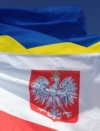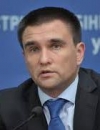
влажность: давление: ветер: |
 NewsRSSUkraine marks first anniversary of visa-free travel to European Union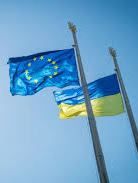
11 of June 2018 г.
Today, on June 11, Ukraine marks the first anniversary of visa-free travel to the European Union.
Now Ukrainian citizens can cross the interstate borders of the European Union countries without the permits from the embassies. The visa waiver agreement between Ukraine and the EU was signed in attendance of President of Ukraine Petro Poroshenko and European Parliament President Antonio Tajani in Strasbourg on May 17, 2017. The deal came into effect on June 11, 2017. 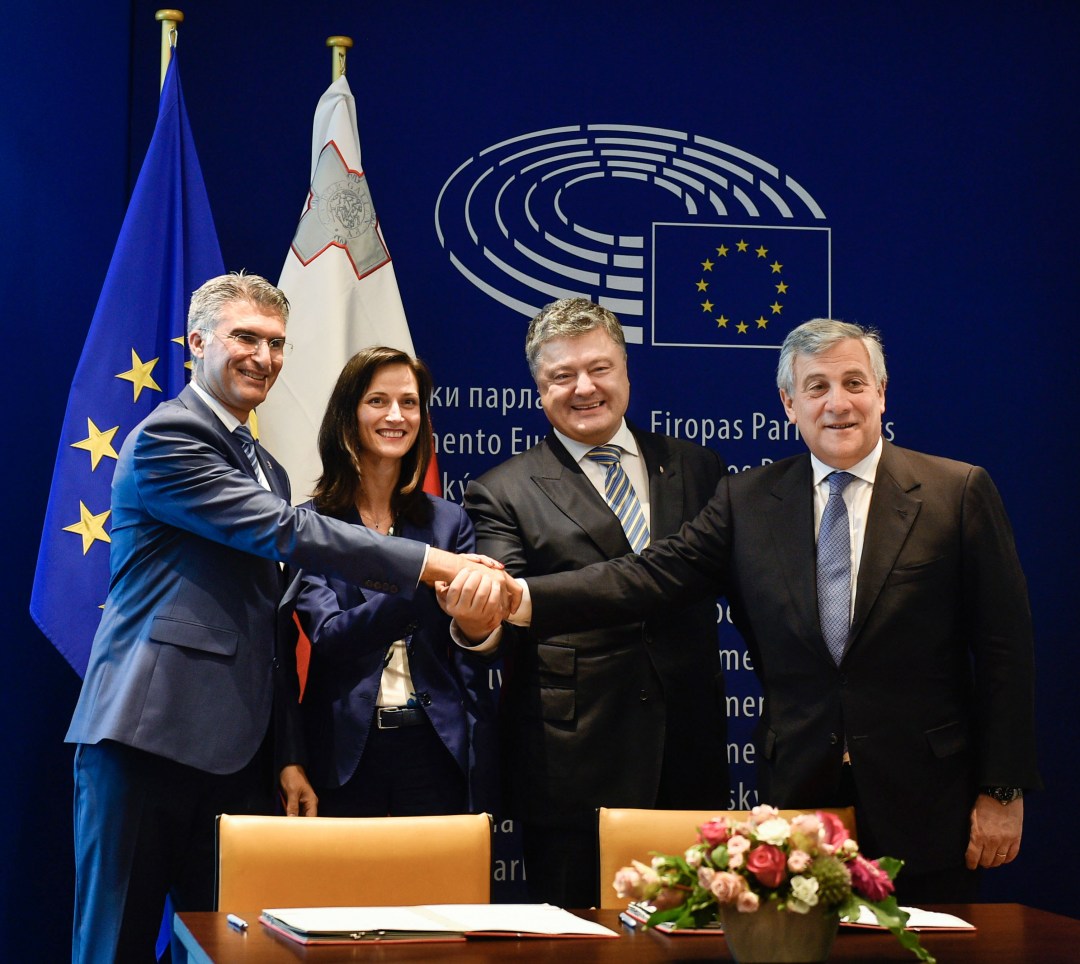 Ukraine's path towards visa-free travel was long and difficult and dates back to the proclamation of independence in 1991 when the European Union in its special declaration recognized Ukraine as a democratic country and a partner in the international relations. On June 14, 1994, the EU-Ukraine Partnership and Cooperation Agreement was signed. It was aimed at the development of economic cooperation and political dialogue and became the main document in relations with the European community. On March 1, 1998, the document came into force, and Ukraine for the first time officially declared its intention to become an EU associate member. 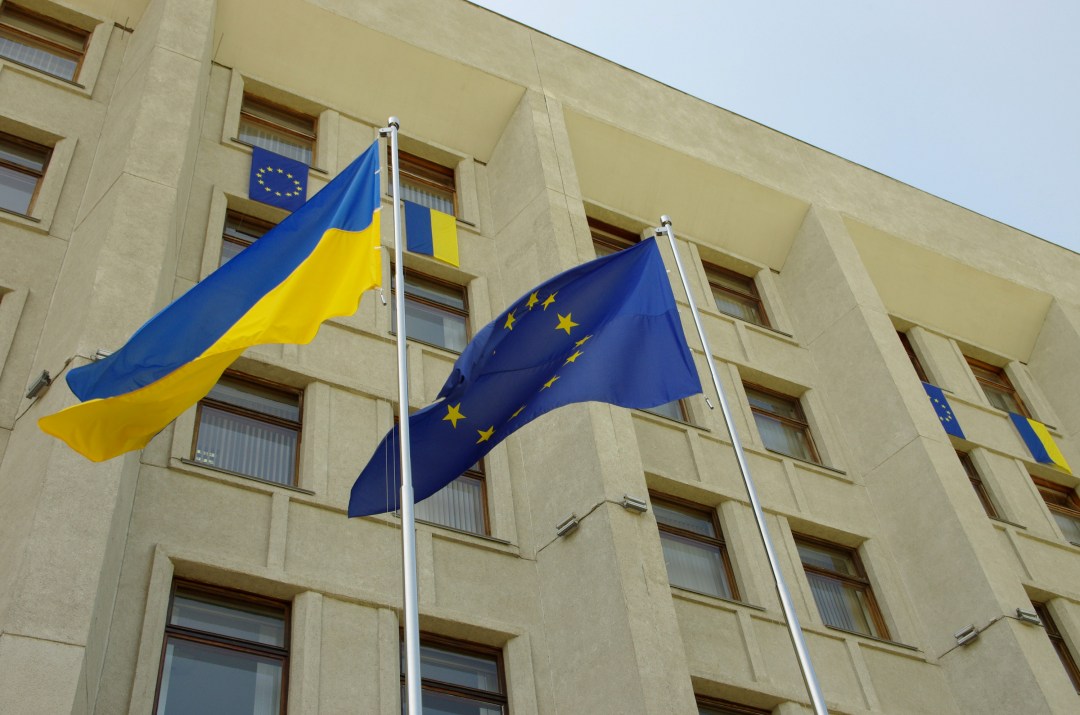 EU-Ukraine relations were evolving, joint summits were held, the strategies of Ukraine's integration into the EU were approved. Discussing the rapprochement in legislative, political and economic sectors, particularly the establishment of the free trade area, the need for liberalization of visa regime for Ukrainian citizens stood out. The visa negotiations took place separately from the talks on signing the association agreement. January 15, 2008, the agreement on facilitation of visa issuance between Ukraine and the EU was signed and ratified by the Verkhovna Rada. September 9, 2008, a visa dialogue started at the EU-Ukraine Summit in Paris. The negotiations continued. In 2010, the European Parliament adopted a resolution recognizing Ukraine’s right to join the EU and granted the European Commission a mandate to elaborate a "road map" on visa-free travels between Ukraine and the EU member countries. In April 2011, the President of Ukraine approved the National Plan for Implementation of the Visa Liberalization Action Plan which consisted of two parts. The first stage provided for the creation of the appropriate regulatory framework, for example, adopting a law on biometric passports, defining the legal status of foreigners and stateless persons, refugees, etc. The EU-Ukraine Association Agreement was expected to be signed at the Vilnius Summit in the autumn of 2013. However, Ukraine's rapprochement with the EU as well as work on obtaining visa-free regime was interrupted by the interference of Russia in the affairs of Ukraine (later it became known that Russian president Vladimir Putin persuaded the then president of Ukraine Viktor Yanukovych not to sign an agreement at the secret meeting). The Cabinet of Ministers of Ukraine issued an order to suspend the process of preparation for signing an agreement with the EU. Ukraine’s implementation of the action plan’s first stage was protracted for several months with a break for the Revolution of Dignity.  The decision of the country's government led to Euromaidan protests and the confrontation between the authorities and the people. After Yanukovych fled and the state leadership was re-elected, the cooperation with the European Union resumed. The transition to the second stage of the visa liberalization action plan took place in 2014, when the European Commission acknowledged completion of the first stage in advance as the Ukrainian Parliament had not yet approved the so-called visa-free laws. The association council confirmed the desire of the parties to achieve visa waiver, provided that all the criteria on properly organized and controlled movement of persons are met. Ukraine had to show that new laws were being implemented, and the newly created bodies were working. However, the legislative procedures in the EU are slow and multilevel. The Europe migrant crisis became one of the reasons for the slowdown of visa liberalization. Some countries started to express doubts about the liberalization of visa regime with a third country before it adopted a special procedure for responding to migration risks. The details were agreed upon and the debates were ongoing for several years. Finally, on April 6, 2017, the European Parliament supported the right of Ukrainian citizens to enter the EU without visas. 521 parliamentarians voted for the decision, 75 MEPs (radical left and radical right) voted against. Majority of the European Parliament's political forces supported visa liberalization for Ukraine. May 17, the final document on the abolition of visa regime between Ukraine and the European Union was solemnly signed in Strasbourg. The text of the decision was published on May 22. 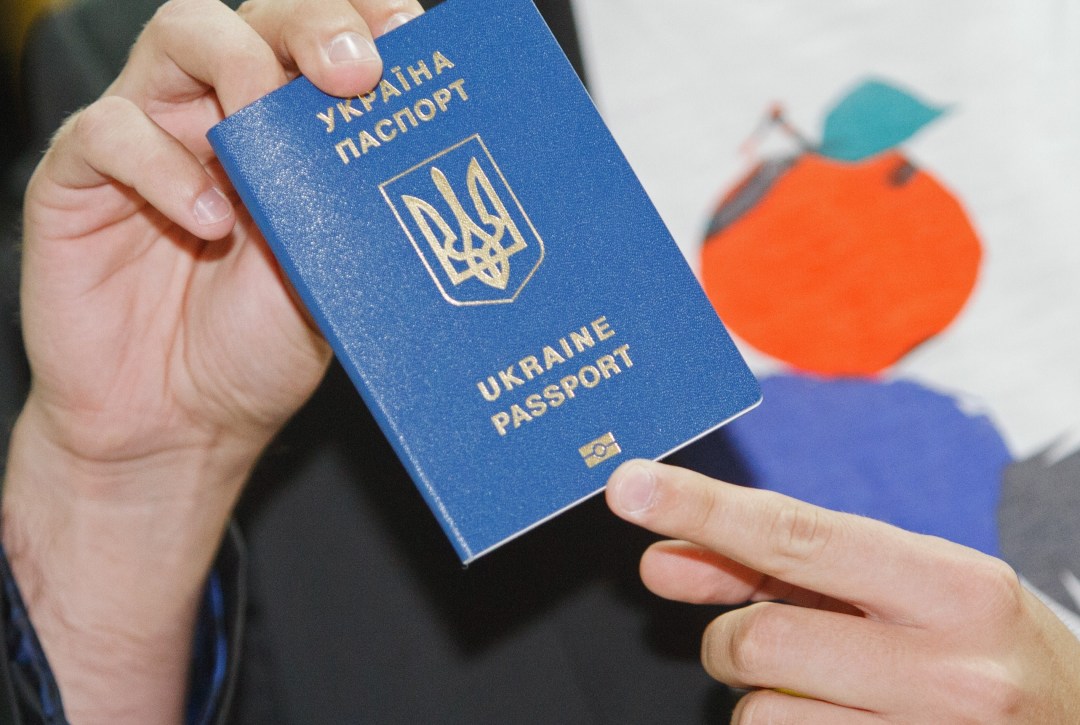 Thanks to the visa-free regime with the European Union, Ukrainian citizens holding biometric passports got the opportunity for travelling without visas to most EU countries (except for the United Kingdom and Ireland as these countries reserved their the right to an independent visa policy) and four more countries, which are members of the Schengen Area but are not members of the European Union. Thus, Ukrainians can travel visa-free to the following countries: Austria, Belgium, Bulgaria, Greece, Denmark, Estonia, Iceland, Spain, Italy, Cyprus, Latvia, Lithuania, Liechtenstein, Luxembourg, Malta, Netherlands, Germany, Norway, Poland, Portugal, Romania, Slovakia, Slovenia, Hungary, Finland, France, Croatia, Czech Republic, Switzerland, Sweden. Ukrainians can enter the EU member states without visas for business, tourism purposes or visiting relatives for no more than 90 days during any 180-day period. At the same time, the visa-free regime does not apply to employment and getting education in the EU. To do this, a special type D visa is needed. Poland is the only country, whose legislation stipulates that a non-EU citizen crossing the border within the visa-free regime has the right to be employed. In this case, a Ukrainian will be issued additional documents. That is, within the framework of the visa-free regime, Ukrainians can come to Poland, find a job and get the necessary documents for employment. According to the information of the EU Delegation to Ukraine, referring to the data of the State Border Guard Service of Ukraine, 5.799,360 Ukrainians took advantage of visa-free travel to the EU for the first three months, namely from July 11 to September 11, 2017. Sixty-one people were denied entry. 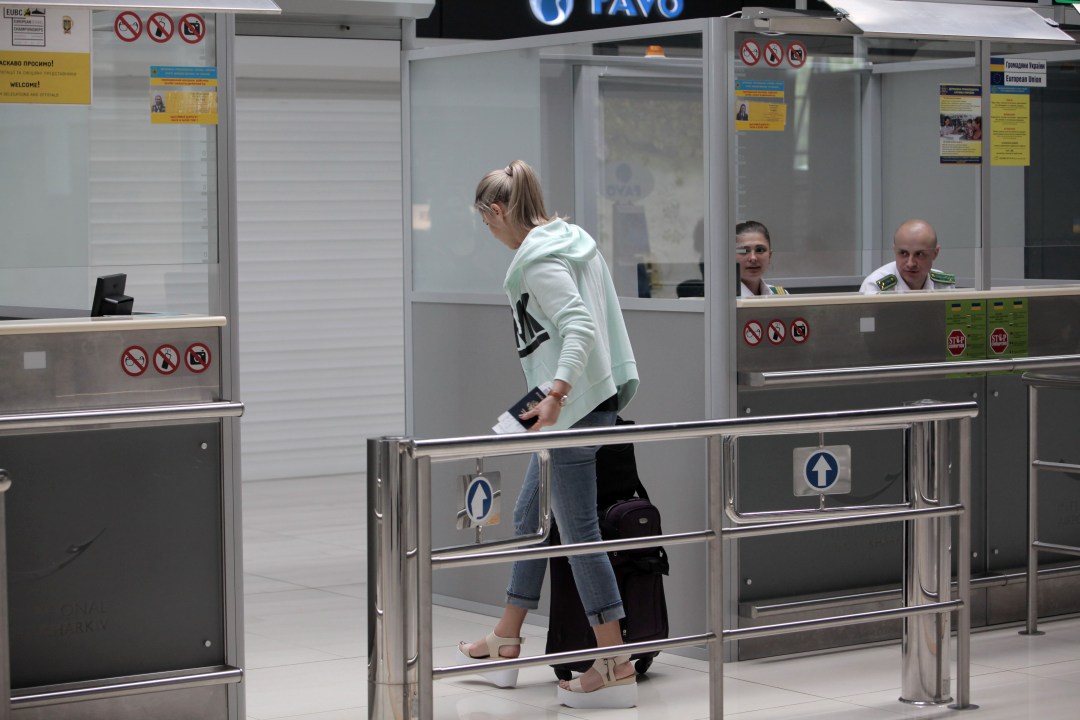 Ukrainians have been enjoying visa-free travel to the EU for a year already. During this time, millions of Ukrainians have crossed the border having a biometric passport only. It should be noted that currently there are no risks that could lead to suspension of visa-free regime for Ukrainian citizens. This has been recently confirmed by European Union Commissioner for European Neighborhood Policy and Enlargement Negotiations Johannes Hahn. The first report of the European Commission under the visa suspension mechanism says that Ukraine does not create migration risks for Europe. Over the past year Ukraine moved up 20 positions in the ranking of countries whose citizens can travel to other countries without a visa. 
другие новости
|
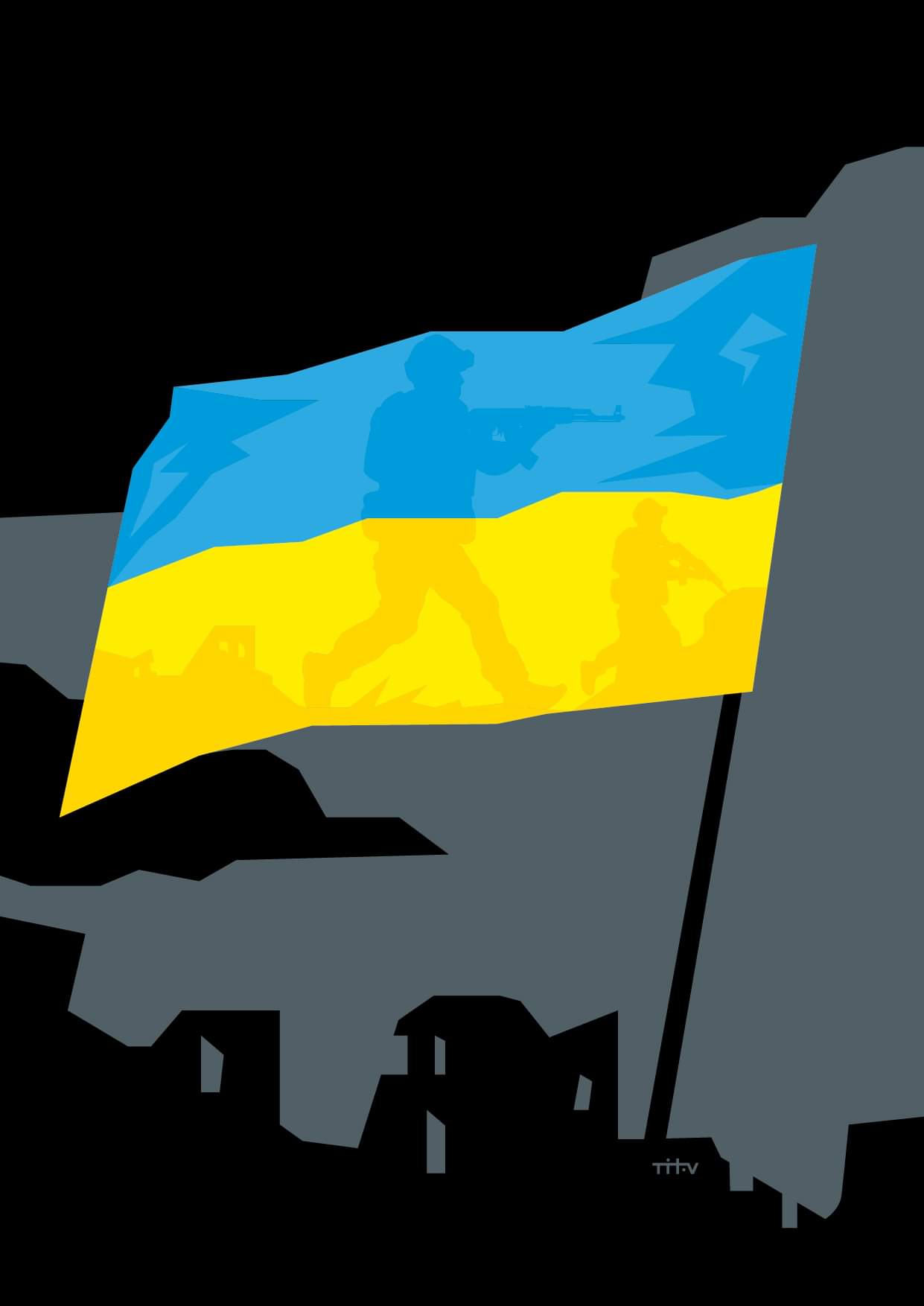 |
















